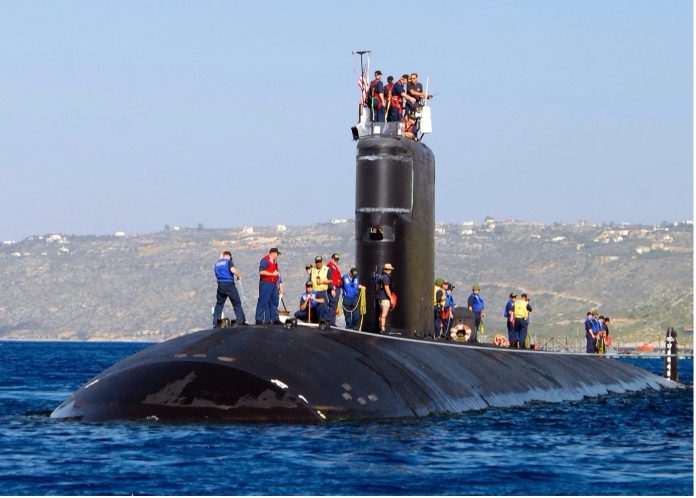The Australian parliament tabled an AUKUS agreement on August 12 to cover radioactive damages from the AUKUS deal and will be responsible for handling our submarines’ nuclear waste.
The updated AUKUS agreement, in place until 2075, allows the United Kingdom and the United States to quit the deal with one year’s notice if they feel it “weakens” their own submarine programs.
Defence Minister Richard Marles said there would be no circumstance where Australia would accept radioactive waste from foreign nations, “other than the waste that Australia generates”.
“What [the updated agreement] is doing is providing the legal underpinning of that,” he said.
Former Prime Minister Scott Morrison said the deal is only about “exchange of technologies” and “improve Australia’s naval military capabilities”.
But academic experts, including Professor Brendon O’Connor and Professor James Laurenceson, have raised questions about the actual “purpose” of the deal, and said the deal is “hardly a democratic decision”.
AUKUS, announced in September 2021, is a controversial strategic defence pact enhancing military capabilities and cooperation between Australia, the United Kingdom, and the United States.
The core aspect of the plan is to help Australia acquire nuclear-powered submarines, marking the first time the United Kingdom and the United States have shared this advanced technology with another country.
Former Prime Minister Scott Morrison said the AUKUS agreement is focused on “enhancing Australia’s defence capabilities”.
“AUKUS, as a defence policy for the development of nuclear-powered submarines, can better utilise defence expenditures to improve Australia’s naval military capabilities and threats,” he said.
“The second link of cooperation is the exchange between Australia, Britain and the United States in military science and technology, including drone flight, quantum power, hypersonic, and other areas.”
Australian Defence Minister Richard Marles said investment in nuclear-powered submarines was a “necessary military expenditure”.
“There is absolutely a rock-solid commitment to Australia,” he said.

Brendon O’Connor, Professor of US Politics and US Foreign Relations at the University of Sydney, said these nuclear submarines are “not enough” to be called “defence devices”.
“What we see is a pretty small number, three to four submarines…I think they’re more likely to be used in the South China Sea as a part of efforts to collaborate with the US, especially on the China-Taiwan issue,” he said.
Professor O’Connor said he thinks AUKUS is a “signal” to China.
“AUKUS is pretty much telling China that we will be partnering with the US, and we’re concerned about their aggressive attitudes in Taiwan-related conflicts.
“The US saw a change in tone since Xi Jinping came to power, and more military exercises in the South China Sea, China showed an increasing ‘warrior attitude’.”
The professor mentioned the current Albanese government wants to balance partnering with China and enhancing defence technologies and corporations with the US, but he said AUKUS is “too risky”.
During a discussion hosted by Charles Darwin University and the Chinese Australian Forum, Professor James Laurenceson, Director of the Australia-China Relations Institute at the University of Technology Sydney, said AUKUS is “hardly a democratic decision”.
“It is hard to argue that GST is less important than AUKUS. GST was implemented by the Howard government in 1988 through a successful civil debate election,” he said.
“Yet despite the scale of AUKUS, a multigenerational project, it was done in complete secrecy. To the Australian public, it was simply a ‘fait accompli’.”
Professor Laurenceson said the AUKUS deal’s total cost is estimated to be between $268 billion and $368 billion over the project’s lifetime, including the building and maintenance.
“It should have been done through open debate… more spending on defence means less spending on foreign affairs, health, education, social welfare, etc,” he said.
“This suspicion has not been caused by disinformation spread by Beijing, nor the influence of its agents. This has a lot to do with AUKUS’s supporters’ failure to make their case to the Australian public.”
Lowy poll’s data in 2024 revealed that 47 per cent of participants said nuclear-powered submarines were not worth the cost, while only 27 per cent said they were.


